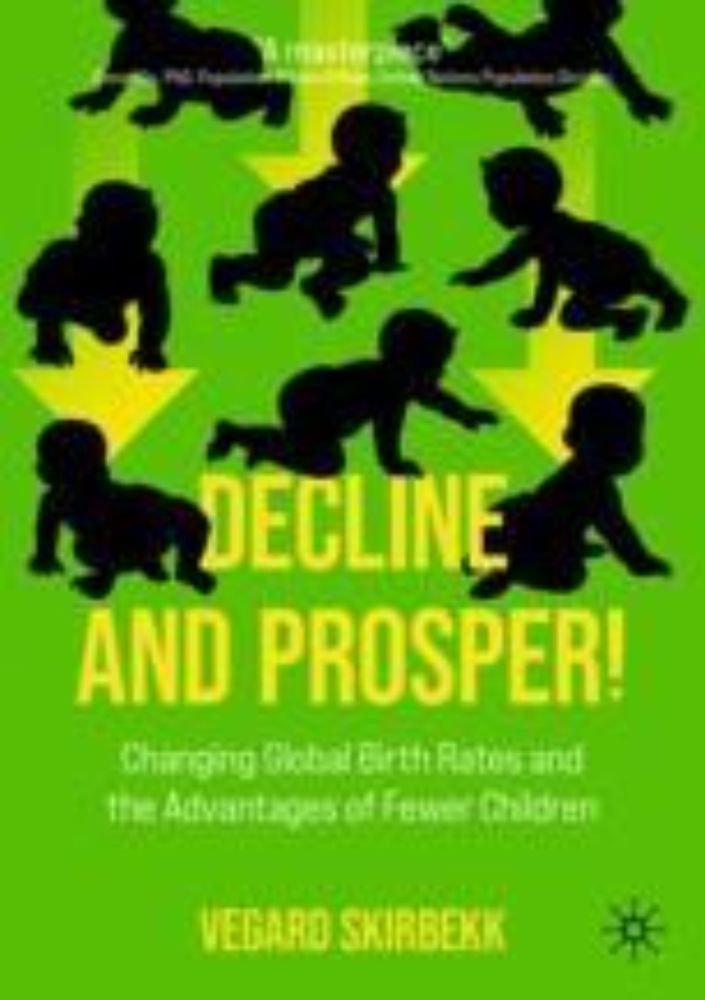
Global Demography, Fertility, Aging, Cognition, Productivity, Religion. Interdisciplinarity.
Professor Columbia & Oslo - PI @theCEFH
https://scholar.google.com/citations?hl=no&user=OZOgxGEAAAAJ&view_op=list_works&sortby=pubdate
. ..
more
Global Demography, Fertility, Aging, Cognition, Productivity, Religion. Interdisciplinarity.
Professor Columbia & Oslo - PI @theCEFH
https://scholar.google.com/citations?hl=no&user=OZOgxGEAAAAJ&view_op=list_works&sortby=pubdate
.
Vegard Skirbekk is a Norwegian population economist and social scientist specializing in demographic analysis and cohort studies. He is a senior researcher at the Norwegian Institute of Public Health and also Professor of Population and Family Health at the Columbia Aging Center at Columbia University. .. more

I argue that low fertility is inevitable, yet also has positive effects. We should help people have the children they want bit.ly/35Hm3Yk

The conference theme was ‘Foreseeing the Future: Educational Reforms in Response to Declining Birth Rates’
Vis oversettelse
Abstract deadline: 19 December 2025.
www.sdu.dk/en/forskning...
link.springer.com/article/10.1...

💡 Time to ART birth decreased since the 2000s, and is shorter for those in their late 30s — likely reflecting improved treatment efficiency and faster access to care.
👉 pubmed.ncbi.nlm.nih.gov/41152834/


"... GDP per capita in Indonesia is USD 4,925 and in Bangladesh USD 2,593, compared to only USD 1,581 in Pakistan"
www.brecorder.com/news/4038893...
Gustavo Freitas presented the project, with @vegardskirbekk.bsky.social, proposing an index of aging preparedness for countries in the world.

Reposted by Vegard Skirbekk

Gustavo Freitas presented the project, with @vegardskirbekk.bsky.social, proposing an index of aging preparedness for countries in the world.
Reposted by Vegard Skirbekk



www.straitstimes.com/singapore/co...
Reposted by Vegard Skirbekk, Lesley A. Hall


No effect on sons.
Explore the emotional toll of parental frailty: doi.org/10.1007/s104... #Caregiving #WellBeing #Aging

link.springer.com/article/10.1...


